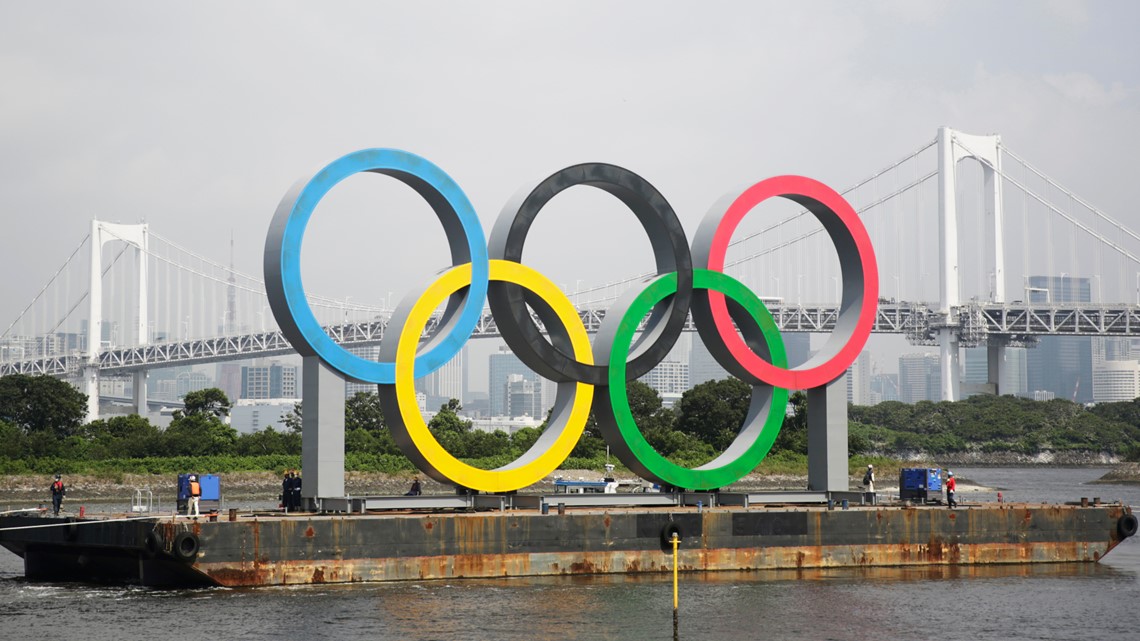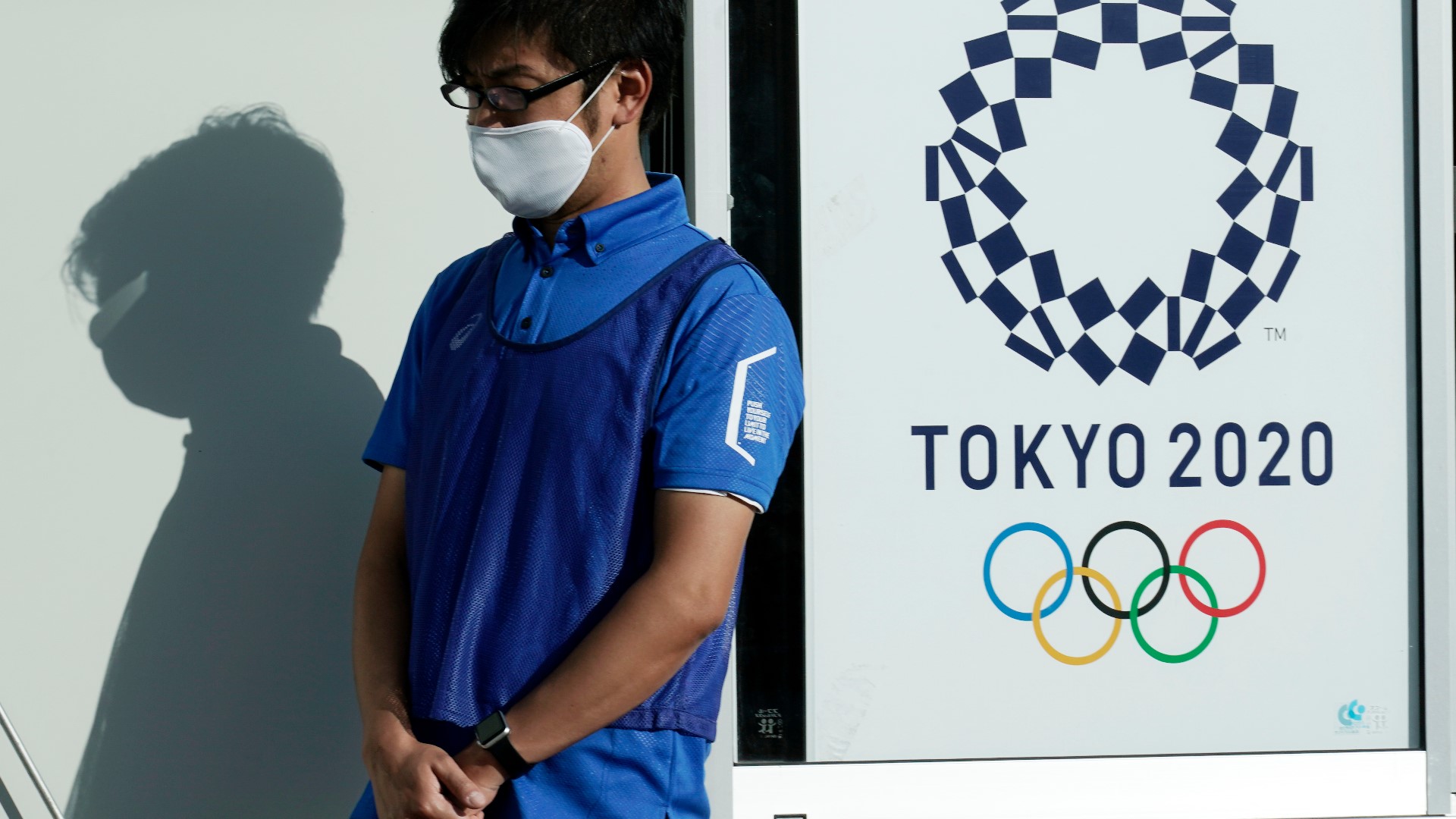Japanese government officials and the International Olympic Committee are vehemently expressing that the Tokyo Olympics will go forward. That's despite a new report that indicates the government has privately concluded the Summer Games will need to be canceled due to the winter surge of the coronavirus pandemic.
Even though Olympic and government officials are publicly saying the games are going to go on, they said the same thing this time last year right up until they postponed. And that was when the virus was just emerging.
British newspaper The Times, citing a senior member of Japan's ruling coalition, reported Thursday that the government is trying to find a way to make an announcement in a manner that can save face -- possibly by bidding for the 2032 Games.
“No one wants to be the first to say so but the consensus is that it’s too difficult,” the source said, according to The Times. “Personally, I don’t think it’s going to happen.”
The source told The Times that the winter surge of the coronavirus was the tipping point. Tokyo and other areas across the country will be under a state of emergency until at least Feb. 7.
In a statement Friday, the IOC said the report is "categorically untrue."
“Some news reports circulating today are claiming that the GOvernment of Japan has privately concluded that the Toyko Olympics will have to be canceled because of coronavirus,” the statement said.
"Together with its Japanese partners and friends, the IOC is fully concentrated on and committed to the successful delivery of the Olympics and Paralympic Games Tokyo 2020 this summer.”
Managu Sakai, the deputy chief cabinet secretary and an ally of the prime minister, also shot down the story.
“There is no such fact and we clearly deny (the report),”he said.
Japan, with a population of 125 million, is averaging nearly 6,200 new cases per day since Jan. 6. Before that date, the single-day high had never crossed 5,000, according to Johns Hopkins University. Japan has had 4,872 deaths tied to the pandemic.
The report did not give a timeline for when an announcement might be made. It had not been independently verified by any other major news outlet as of Thursday night.
Sir Keith Mills, the CEO of the 2012 Olympics in London, told BBC's Radio 5 on Tuesday that he believed Tokyo organizers should be making cancellation plans.
"Personally, sitting here looking at the pandemic around the world, it looks unlikely I have to say," Mills said. He noted that organizers had about a month left before needing to make a definite call.
Reuters reports that Japan’s Prime Minister Yoshihide Suga said on Friday that he was determined to make the Tokyo Olympics happen. The report did not, however, specify if Suga specified this year or at a future date. 2032 is the next open year for a Summer Olympics.
IOC President Thomas Bach pledged on Thursday that the games would happen. In an interview with Japan's Kyodo News, Bach explained that there "is no plan B" for the games. He claimed that his committee is committed "to make these games safe and successful."
But this is the language that was heard a year ago. On March 12 of last year, Olympic minister Seiko Hashimoto insisted that International Olympic Committee and Japanese organizers were “not considering cancellation or a postponement, absolutely not at all.” The games were postponed 12 days later.
Bach pushed back on that history Thursday.
"First of all, let me be clear that you cannot compare March 2021 with March 2020 because there is such great progress in science, medicine, vaccination and (virus) tests," Bach told Kyodo News. "All this was not available in March last year. Nobody knew yet how really to deal with the pandemic, and now we know much more."
Citizens are skeptical. Recent polls in Japan show 80% of the public believe the Olympics should not happen with virus cases surging — or will not happen.
A key date to watch for is March 25. That's when the torch relay, heavily sponsored by Coca-Cola and Toyota, begins from northern Japan, crisscrossing the country for four months with 10,000 runners headed to Tokyo. Last year, the games were postponed two days before the relay was scheduled to start. If the relay begins, it would be difficult to imagine the games not going ahead.
Only five Olympics have ever been canceled, all during wartime: the 1916, 1940 and 1944 Summer Olympics, and Winter Games in 1940 and 1944. But that was before big money was involved.
Japan has spent at least $25 billion preparing the Olympics. The IOC earns 73% of its revenue from selling broadcast rights. In Tokyo, this could amount to $2 billion to $3 billion in lost income if the games were canceled.
Former International Olympic Committee vice president Dick Pound told Kyodo Thursday that he still believed the games would go on as scheduled, but suggested fans may not be allowed to attend. Pound is no longer part of the the IOC's decision-making executive board, but has been speaking up to generate excitement for the games.
Paris will host the 2024 Summer Games followed by Los Angeles in 2028.
After Tokyo, the next Olympics is the Winter Games next February in Beijing.



